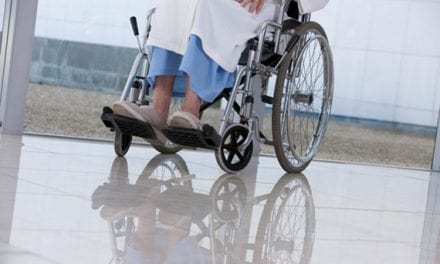By Jack Cumming
Have you parented? If so, you know that children change so fast it’s hard to know how to react. It’s like trying to lead during a pandemic. When I think back to my own early parenting days, I now realize that I failed to grieve the loss of the lovable two-year-old because I was swept up by the adorable three-year-old who took his place (both my children were boys).
Coping with the pandemic and its aftermath is a bit like that early life transition. The two-year-old needed supervision. We had to keep him constantly in view. The three-year-old had more sense, and we could trust him to play quietly in his room while we read or relaxed in the living room. Trusting him taught him to be trustworthy. It brought us rest. The pandemic has demonstrated that many workers can be productive from home without the constant supervision that comes with spending the workday encased in a cubicle.
Learning to Trust
Businesses have trusted employees to work on their own, and most have performed exceptionally under difficult circumstances. Frontline workers, forced to pivot and respond to changing circumstances, have shown ingenuity and resilience beyond anything we might have expected. The old rule, “People do what you inspect, not what you expect,” has given way to a new culture in which “People do more than you expect when they are no longer suspect.”
Like that early life transition, this one, too, comes with grief and celebration. We grieve not only those we have lost to disease, but we also grieve the loss of the clock-driven routine that was our work lives. We grieve even as we celebrate the new burst of creativity, the adaptability under stress, and the opportunities that now are evident.
Life-Work Balance and More
Those who work from home have learned not only to balance work and home but to integrate them. It’s a delightful break from the intensity of a business meeting when a pet cat suddenly walks across in front of a camera. At its extreme, in the most serious of serious contexts, a virtual courtroom, a child’s skill turns an attorney into a cat avatar. We’ve been taking our adult selves too seriously for far too long. Workers have home lives, and it’s about time that we acknowledge our shared humanity. The pandemic has taught us to cherish what unites us not the artificialities of position or origin that divide us.
One of the big benefits from remote working has been the gain of the hours previously spent commuting from home to office, not to mention the time of settling in once one arrived at work. Those pre-pandemic socializing minutes at work, which often lasted longer than many realized, weren’t productive.
It’s true that people work best with colleagues, so regular open discussions, as well as targeted meetings, are important for creative productivity. Much of that can be done on Zoom, though occasional in-person get-to-know-you events build bonds of partnership and shared mission.
Gaining by Letting Go
Just as the trusted three-year-old needs less direct supervision, managers have learned that many, perhaps most – certainly the best – employees don’t need that direct supervision that justified the traditional office setup. Most people want to do good work. If we free them to do just that, they will accept the responsibility that now is theirs and will rise to what is expected. They don’t need to sit in cubicles outside the watchful eye of the low-level executive in the nearby glass-walled office.
All of this is to say that our world has changed forever. Of course, the crisis atmosphere will change. Predictability will return to our lives. We won’t face new regulatory mandates and unexpected new disease threats with every daybreak. Still, some things will remain. Employees have shown that they can be self-actuated and don’t need to be micro-managed. Those few who are reluctant workers can best be counseled to find employment elsewhere, which can better give meaning to their lives.
Networked Productivity
The corollary is we don’t need the hierarchical corporate structure. The internet has introduced new thinking. Leadership can be derived from the nature of the task or project instead of from the power of position. Leaders support others as team members depending on what’s to be done and how best to do it. The focus can be on business purpose rather than title.
Just as finance reaches down to touch every action in a business, so now does digital connectivity. We no longer need the filter of a chain of command to let the C-Suite know what is happening at the bottom. The universality of data capture and data analysis can give an instant-by-instant picture of how well the corporate mission is being fulfilled by frontline workers in their interactions with those the corporation exists to serve.
Lessons from Crisis
The vicissitudes of COVID-19 have challenged us all and even taken the lives of many. But they have also demonstrated the resilience of frontline workers, especially those who work in the demanding circumstances of senior living. That work can often seem demeaning and discouraging. It’s not.
Our workers ennoble themselves by their service. We can give them opportunities to learn, prove themselves, and advance, just as we give those opportunities to our children. And, we can celebrate them for the maturity they bring to their tasks . . . just as we celebrate that delightful three-year-old who’s playing quietly in the other room while Mom is on a Zoom call with her colleagues.
Click here to read comments and join the conversation about this article.








